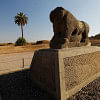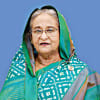United in diversity

On February 21, we mark International Mother Language Day, a celebration of the world's linguistic and socio-cultural diversity. We are particularly honoured to mark this day here in Bangladesh as this day is also a worldwide tribute to the people of this country who have courageously fought for recognition of the Bangla language.
To commemorate the Bangladeshi martyrs who sacrificed their lives on this very day in 1952, the General Conference of the United Nations Educational, Scientific and Cultural Organization (Unesco) unanimously proclaimed February 21 as International Mother Language Day in 1999. This is a significant contribution of Bangladesh to the world. On this day, we mark our linguistic and cultural diversity, the core of our identity, and aim "to promote the preservation and protection of all languages used by peoples of the world."
Looking back at history, it is important to reflect on the significance of Mother Language Day to respect and protect all languages of the world. Unfortunately, about every two weeks a language disappears, and when a language disappears, the entire world loses a part of its traditions, memories, and experiences that make our societies so culturally and intellectually diverse.
According to recent Unesco estimates, at least 43 percent of more than 6,000 languages spoken in the world are endangered. Due to globalisation processes, many languages, particularly indigenous ones, are on the verge of extinction. As fewer than a hundred of the world's languages are used in the digital world, and only a few hundred widely-spoken languages have been taught in schools, this trend is likely to increase in the future.
To tackle this, UN agencies encourage multilingual education to be based on the mother tongue or first language. This not only serves to keep languages alive, but has a range of additional benefits in terms of learning outcomes. To emphasise the importance of this, last year was the beginning of the International Decade of Indigenous Languages (2022-2032). This decade highlights the revival and promotion of indigenous and mother-tongue languages. Preserving language is at the heart of preserving identity, culture and diversity, and hence the Sustainable Development Goals (SDGs).
In Bangladesh, the Bangla language is flourishing. Events such as the annual Ekushey Book Fair promote writing and reading in Bangla. The development of educational resource materials for teaching at primary grades in Bangladesh's indigenous languages has started, initially with the five languages of Chakma, Garo, Marma, Sadri, and Tripura. Additional languages will be added each year to eventually cover all the languages of the country.
On February 21, we remember the Bangla Language Movement martyrs Abdus Salam, Rafiq Uddin Ahmed, Abul Barkat, Abdul Jabbar, and Ohiullah for sacrificing their lives to speak their mother tongues. We should not forget the significance of this day.
Embracing and protecting our linguistic diversity must be reinforced by not allowing anyone to use language as a tool to provoke conflicts and any forms of discrimination. It is important to respect all languages: big and small, widely and less spoken, indigenous and foreign. The diversity of languages is vital in intercultural dialogue to build inclusive societies.
On behalf of the staff of the United Nations in Bangladesh, representing foreign and indigenous languages of different states and parts of the country from Teknaf to Panchagarh, we wish the people of Bangladesh a happy International Mother Language Day. The day the country courageously fought for, and the legacy of which should not be forgotten.
Happy International Mother Language Day!
Gwyn Lewis is UN resident coordinator in Bangladesh.
Dr Susan Vize is officer-in-charge of Unesco Dhaka office.

 For all latest news, follow The Daily Star's Google News channel.
For all latest news, follow The Daily Star's Google News channel. 










Comments